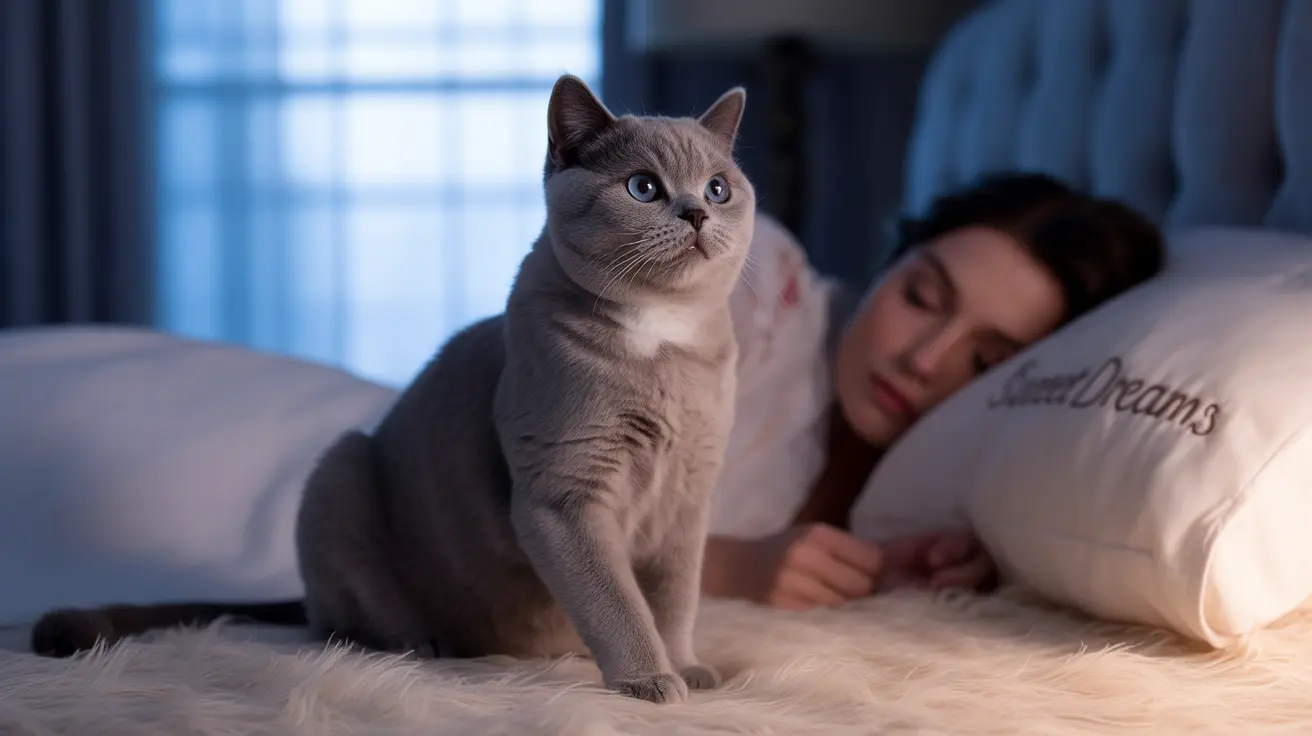Understanding Your Cat's Selective Wake-up Calls
Cats develop distinct preferences for certain household members, often manifesting in their nighttime behavior. This selective attention isn't random - it's influenced by various factors including bonding, routine, and personality matches between cats and their human companions.
The Bond Factor: Why Cats Choose Their Favorite Human
Cats typically form stronger attachments to the person who provides most of their daily care and attention. This primary caregiver often becomes the target of nighttime wake-up calls because the cat associates them with positive experiences like feeding, play, and comfort.
Research suggests that cats remember and respond to past interactions, developing stronger bonds with individuals who consistently meet their needs in ways they prefer. This could explain why your cat may wake you but not your husband - you might be the one who historically responds to their needs.
Nighttime Activity Patterns and Natural Instincts
Cats are crepuscular animals, meaning they're naturally most active during dawn and dusk. This evolutionary trait can explain why your feline friend might become particularly active when you're trying to sleep. Their internal clock often doesn't align with human sleep schedules, leading to those infamous early morning wake-up calls.
The Role of Routine and Reinforcement
If you've ever given in to your cat's nighttime demands - whether for food, attention, or play - you've inadvertently reinforced this behavior. Cats quickly learn which tactics work with which humans, and they'll repeat successful strategies with their chosen person.
Environmental and Behavioral Factors
Your cat's preference might also be influenced by practical considerations:
- Sleeping position and accessibility to your side of the bed
- Your response rate to their attempts
- Your sleep patterns and movement during the night
- Familiar scents and sounds associated with you
Physical and Emotional Needs
Sometimes, cats wake their preferred person due to:
- Hunger or thirst
- Desire for attention or play
- Anxiety or seeking comfort
- Physical discomfort or health issues
- Boredom or lack of daytime stimulation
Solutions for Peaceful Nights
To minimize nighttime disruptions:
- Establish a consistent feeding schedule
- Engage in active play before bedtime
- Create comfortable sleeping areas away from your bedroom
- Ignore attention-seeking behavior at night
- Ensure adequate daytime enrichment and exercise
Frequently Asked Questions
Why does my cat wake me up at night but ignore my husband?
Your cat likely has a stronger bond with you, possibly due to being their primary caregiver or having a more responsive relationship. Cats often choose one person based on past positive interactions, routine, and personality compatibility.
How can I stop my cat from waking me up during the night?
Establish a consistent routine with scheduled feeding times, increase daytime activity, provide evening play sessions, and avoid reinforcing nighttime wake-up behavior by not responding to demands for attention or food.
What causes cats to be more active and wake owners at dawn and dusk?
Cats are crepuscular animals, naturally programmed to be most active during twilight hours. This evolutionary trait stems from their wild ancestors' hunting patterns when prey was most abundant.
Does my cat prefer me because of our bond or routine?
It's typically a combination of both. Cats form stronger bonds with people who consistently meet their needs and match their personality. Regular positive interactions and established routines strengthen this preference.
Could my cat's night waking be related to health or boredom?
Yes, persistent night waking could indicate underlying health issues or insufficient daytime stimulation. If the behavior suddenly increases or changes, consult a veterinarian to rule out medical causes. Ensure your cat receives adequate mental and physical stimulation during the day.






